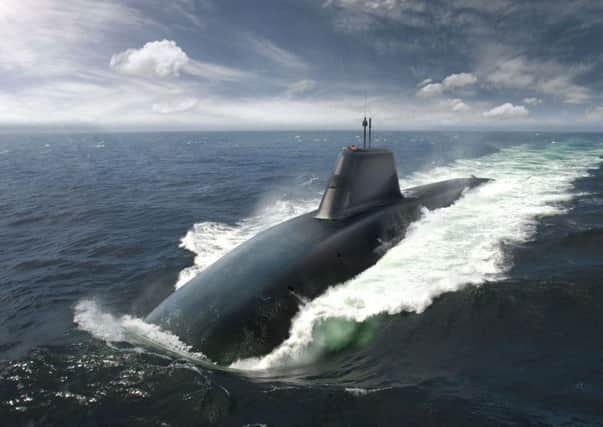Leaders: Trident cost is no longer just a defence issue


At a time when the cost of living is occupying the minds of families around the country, the debate surrounding the replacement of Trident is perhaps not the most prominent political development being discussed across dinner tables and staff rooms, but those who have already set out their positions have a sense of purpose and belief seldom seen in recent decades when it comes to the nuclear issue.
The colossal scale of the revised budget for the four new submarines announced yesterday means that a topic that has already caused widespread political turmoil over the past year will continue to play a defining role in at least the next Westminster elections, especially at a time when national security is a major consideration.
Advertisement
Hide AdAdvertisement
Hide AdBut the sheer expense of what is proposed means that it may now become a source of debate across a wider public forum, among those whose chief concern is not protecting our country or the moral indefensibilty, but suppposedly pedestrian matters such as cost.
The Strategic Defence and Security Review (SDSR) unveiled by Prime Minister David Cameron in the Commons estimates that the bill for replacing the Royal Navy’s ageing fleet of submarines that carry Britain’s nuclear deterrent has snowballed, citing the “greater understanding” defence officials now have about the detailed design of the submarines and their manufacture.
Over the course of the 20-year procurement programme, the review indicates that the overall expenditure will be £31bn, compared to a previous estimate of £25bn. Factor into this an additional £10bn contingency set aside to meet additional unexpected cost increases and the total exceeds £40bn.
It is a sum scarcely conceivable to most people, one that excludes the likes of missiles, warheads, personnel and infrastructure. What is more, for a government committed to deep and prolonged cuts, it will come at a price.
The costings of the five-year review accounts for swingeing cuts to civilian jobs across defence and security departments in Whitehall, with a third of Ministry of Defence (MoD) staff laid off and a similar proportion of the UK’s defence estate sold off.
That is to say nothing of where else the axe might fall. Even without the contingency, the revised Trident budget exceeds annual spending on housing benefit (£26bn) and child tax credits and working tax credits (£30bn). Such government departments and others are no doubt steeling themselves; the £12bn in additional MoD funding confirmed yesterday must come from somewhere.
Were it not so already, the question surrounding Trident has become considerably more complex overnight. It no longer asks whether we are right to replace it, but whether we can justify doing so, given the sacrifices involved in footing the bill for the largest expansion of UK military capability in decades.
If the government presses ahead with these ambitious plans, the repercussions will be felt far and wide. Those of us who until now have regarded Trident as a defence issue will realise its impact goes far beyond that.